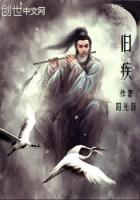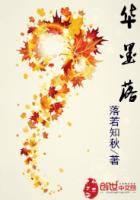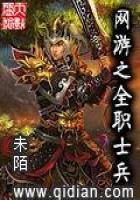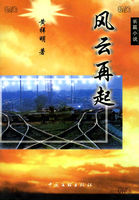But with the Stuart era (perhaps at the end of Elizabeth's reign) fathers became gradually personages who are to be disobeyed, sucked of their money, fooled, even now and then robbed and beaten, by the young gentlemen of spirit; and the most Christian kings, James and Charles, with their queens and court, sit by to see ruffling and roystering, beating the watch and breaking windows, dicing, drinking, duelling, and profligacy (provided the victim be not a woman of gentle birth), set forth not merely as harmless amusements for young gentlemen, but (as in Beaumont and Fletcher's play of 'Monsieur Thomas') virtues without which a man is despicable. On this point, as on many others, those who have, for ecclesiastical reasons, tried to represent the first half of the seventeenth century as a golden age have been altogether unfair. There is no immorality of the court plays of Charles II.'s time which may not be found in those of Charles I.'s. Sedley and Etherege are not a whit worse, but only more stupid, than Fletcher or Shirley; and Monsieur Thomas is the spiritual father of all Angry lads, Rufflers, Blades, Bullies, Mohocks, Corinthians, and Dandies, down to the last drunken clerk who wrenched off a knocker, or robbed his master's till to pay his losses at a betting-office. True; we of this generation can hardly afford to throw stones. The scapegrace ideal of humanity has enjoyed high patronage within the last half century; and if Monsieur Thomas seemed lovely in the eyes of James and Charles, so did Jerry and Corinthian Tom in those of some of the first gentlemen of England. Better days, however, have dawned; 'Tom and Jerry,' instead of running three hundred nights, would be as little endured on the stage as 'Monsieur Thomas' would be; the heroes who aspire toward that ideal are now consigned by public opinion to Rhadamanthus and the treadmill; while if, like Monsieur Thomas, they knocked down their own father, they would, instead of winning a good wife, be 'cut' by braver and finer gentlemen than Monsieur Thomas himself: but what does this fact prove save that England has at last discovered that the Puritan opinion of this matter (as of some others) was the right one?
There is another aspect in which we must look at the Stuart patronage of profligate scapegraces on the stage. They would not have been endured on the stage had they not been very common off it; and if there had not been, too, in the hearts of spectators some lurking excuse for them: it requires no great penetration to see what that excuse must have been. If the Stuart age, aristocracy, and court were as perfect as some fancy them, such fellows would have been monstrous in it and inexcusable, probably impossible. But if it was (as it may be proved to have been) an utterly deboshed, insincere, decrepit, and decaying age, then one cannot but look on Monsieur Thomas with something of sympathy as well as pity. Take him as he stands; he is a fellow of infinite kindliness, wit, spirit, and courage, but with nothing on which to employ those powers. He would have done his work admirably in an earnest and enterprising age as a Hudson's Bay Company clerk, an Indian civilian, a captain of a man- of-war--anything where he could find a purpose and a work. Doubt it not. How many a Monsieur Thomas of our own days, whom a few years ago one had rashly fancied capable of nothing higher than coulisses and cigars, private theatricals and white kid gloves, has been not only fighting and working like a man, but meditating and writing homeward like a Christian, through the dull misery of those trenches at Sevastopol; and has found, amid the Crimean snows, that merciful fire of God, which could burn the chaff out of his heart and thaw the crust of cold frivolity into warm and earnest life. And even at such a youth's worst, reason and conscience alike forbid us to deal out to him the same measure as we do to the offences of the cool and hoary profligate, or to the darker and subtler spiritual sins of the false professor. But if the wrath of God be not unmistakably and practically revealed from heaven against youthful profligacy and disobedience in after sorrow and shame of some kind or other, against what sin is it revealed? It was not left for our age to discover that the wages of sin is death: but Charles, his players and his courtiers, refused to see what the very heathen had seen, and so had to be taught the truth over again by another and a more literal lesson; and what neither stage-plays nor sermons could teach them, sharp shot and cold steel did.
'But still the Puritans were barbarians for hating Art altogether.'
The fact was, that they hated what art they saw in England, and that this was low art, bad art, growing ever lower and worse. If it be said that Shakspeare's is the very highest art, the answer is, that what they hated in him was not his high art, but his low art, the foul and horrible elements which he had in common with his brother play-writers. True, there is far less of these elements in Shakspeare than in any of his compeers: but they are there. And what the Puritans hated in him was exactly what we have to expunge before we can now represent his plays. If it be said that they ought to have discerned and appreciated the higher elements in him, so ought the rest of their generation. The Puritans were surely not bound to see in Shakspeare what his patrons and brother poets did not see. And it is surely a matter of fact that the deep spiritual knowledge which makes, and will make, Shakspeare's plays (and them alone of all the seventeenth century plays) a heritage for all men and all ages, quite escaped the insight of his contemporaries, who probably put him in the same rank which Webster, writing about 1612, has assigned to him.
'I have ever cherished a good opinion of other men's witty labours, especially of that full and heightened style of Master Chapman; the laboured and understanding works of Mr. Jonson; the no less witty composures of the both wittily excellent Mr. Beaumont and Mr.
Fletcher; and lastly (without wrong last to be named), the right happy and copious industry of Shakspeare, Mr. Dekker, and Mr.
Heywood.'
While Webster, then, one of the best poets of the time, sees nothing in Shakspeare beyond the same 'happy and copious industry' which he sees in Dekker and Heywood,--while Cartwright, perhaps the only young poet of real genius in Charles the First's reign, places Fletcher's name ''Twixt Jonson's grave and Shakspeare's lighter sound,' and tells him that 'Shakspeare to thee was dull, whose best wit lies I' th' ladies' questions, and the fool's replies.
Whose wit our nice times would obsceneness call.
Nature was all his art; thy vein was free As his, but without his scurrility;'















